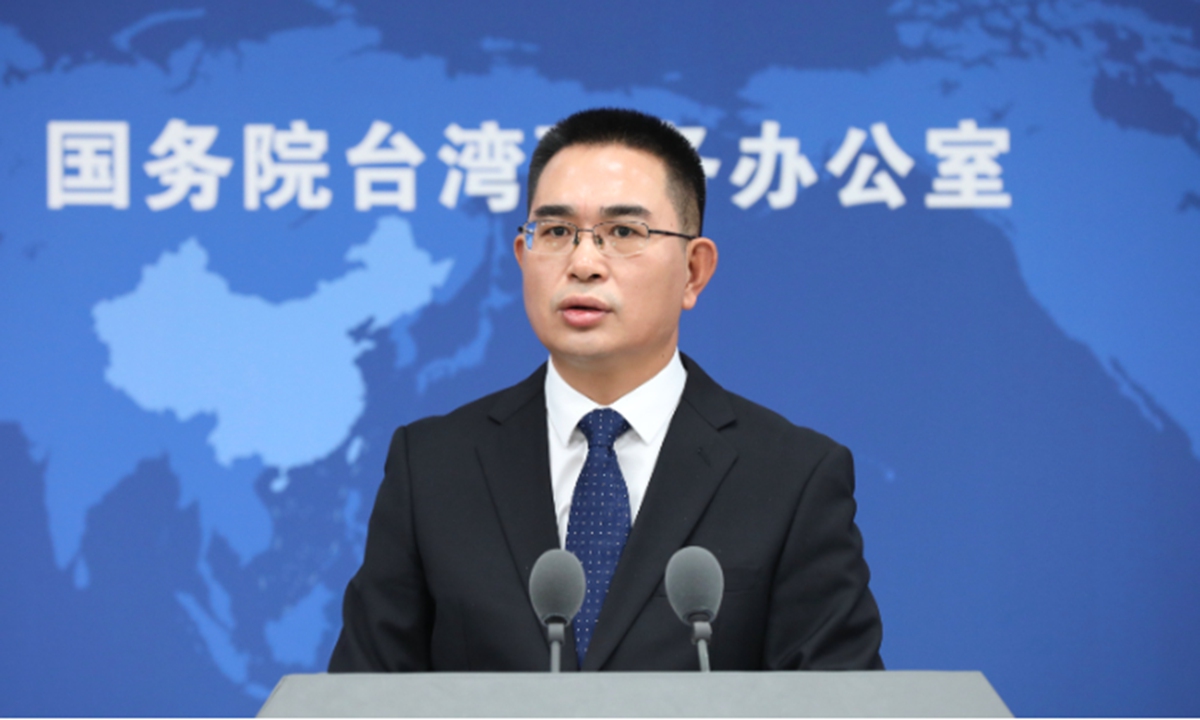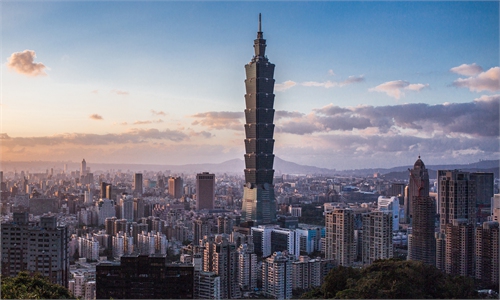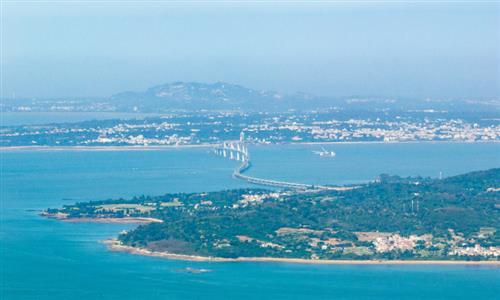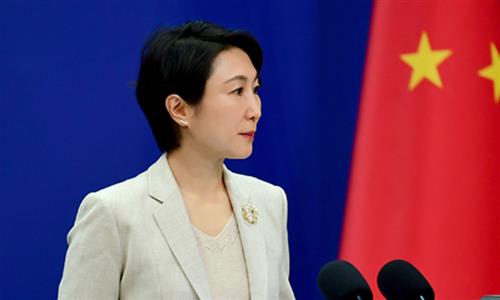Mainland to unswervingly advance reunification, oppose secessionism and uphold peace: Taiwan Affairs Office

Chen Binhua, a spokesperson for the State Council's Taiwan Affairs Office Photo:VCG
In 2024, the Chinese mainland will adhere to the principles of "peaceful reunification and One Country, Two Systems," continue to oppose Taiwan secession and external interference, continue to promote cross-Straits exchanges, cooperation and integrated development, and unswervingly advance reunification of the motherland, a mainland Taiwan affairs spokesperson said on Wednesday.
Responding to media queries at the first press briefing of Taiwan Affairs Office in 2024, spokesperson Chen Binhua looked ahead the cross-Straits relations in the new year, and reiterated the mainland's determination on achieving national reunification.
Only by realizing reunification of the motherland can we fundamentally remove the hidden dangers of Taiwan secession, completely crush the attempts of external forces to "use the Taiwan card to contain China," and safeguard our national sovereignty, security and development interests, Chen said, "only then can we put an end to the special state of long-term cross-Straits political antagonism and realize permanent peace in the Taiwan Straits."
On the mainland's policy toward Taiwan for some time to come, Chen said, "We will unswervingly adhere to the 1992 Consensus that embodies the one-China principle, firmly oppose 'Taiwan independence,' and uphold peace."
Chen said the discussion of "reunification by force" circulating on the internet after Lai Ching-te's election reflects the concern of all sectors on the island that the DPP might aggravate the tense and volatile situation across the Straits.
"The mainland is willing to create a broad space for peaceful reunification and is willing to strive for the prospect of peaceful reunification with utmost sincerity and effort," Chen stressed.
According to Li Zhenguang, deputy director at the Institute of Taiwan Studies under the Beijing Union University, the tone of spokesperson's remarks was very clear: the mainland will continue to promote reunification in accordance with the Party's overall policy for resolving the Taiwan question in the new era.
The general policy will not be swayed by a small twist or turn, Li said, echoing Chen's remarks that the elections "will not change the basic landscape and development trend of cross-Straits relations, will not alter the shared aspiration of compatriots across the Taiwan Straits to forge closer ties, and will not impede the inevitable trend of China's reunification."
"The overall situation in the Taiwan Straits, the dominance and initiative are still firmly in the hands of the mainland," Li said.
The fact that 60 percent of Taiwan's voters did not support the DPP's continuation in power in this election shows that the mainstream public opinion in Taiwan, in fact, feels the risk posed by secessionists, Li said, "the majority of Taiwan compatriots do not want to see the Straits shadowed in danger of war, but want more integration and peaceful development and exchange."
Although Lai mentioned cross-Straits exchanges and dialogues in his post-election speech, he referred to the mainland as "China" and smeared the mainland as "authoritarian," revealing his nature as a diehard secessionist, analysts said.
In this regard, Chen remarked that on the basis of the one-China principle, there is no obstacle for any political party or group in Taiwan to interact with the Chinese mainland. "The DPP's stubborn insistence on the separatist position of 'Taiwan independence' is a fundamental obstacle to its interaction with us."
Chen called on the vast number of Taiwan compatriots to "uphold the general principles, grasp the general trend, stand firmly on the right side of history," and work with the Chinese mainland to promote cross-Straits relations to get back to the right track of peaceful development.
Compared to the rash calls on the internet, mainland decision-makers are calm and rational, always focusing on the top interests of the Chinese nation on both sides of the Taiwan Straits, Li said.
At the same time, the mainland is also well-prepared to deter Taiwan secessionists. Under the pressure of the mainland, neither the US nor the DPP authorities dare to act recklessly and radically, he added.




